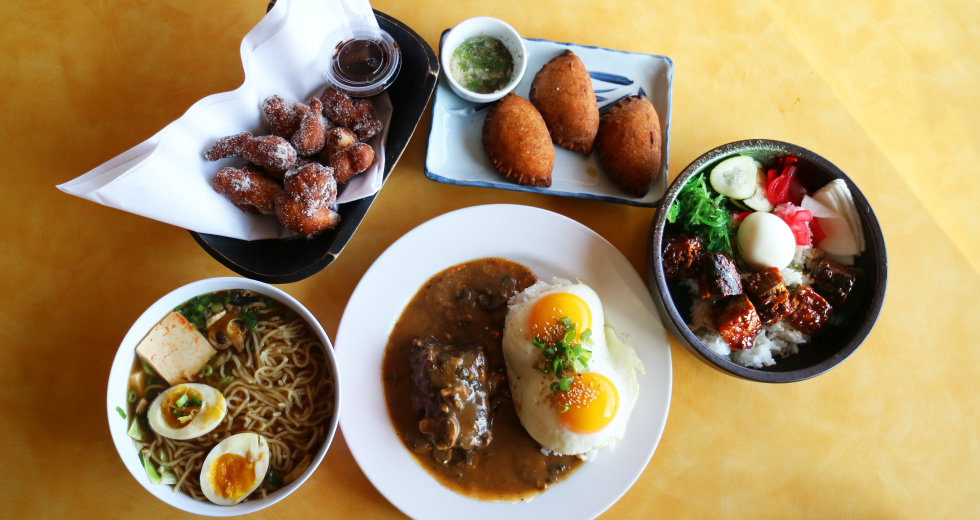The standard components of loco moco, the Hawaiian diner staple, are rice, hamburger patties, fried eggs and gravy, mounded like a shield volcano in the act of erupting. It is working class food, conceived to fill the diverse stomachs of Hawaii’s labor force, and a good fry cook can turn one out in minutes. But at Kehaulani’s Cafe in Vallejo, the loco moco starts with short ribs braised for 12 hours.
Under the low, persistent heat, every sinew succumbs. The cut that arrives on the plate — flanked by rice and two marigold-yolked eggs — is conquered, kowtowing to the touch of a fork. It is veiled in a sauce more like a mushroom demi-glace than the pudding-smooth gravy that usually accompanies loco moco. Though perniciously rich, the sauce contains no butter, instead based on a roux made from rendered beef drippings. This is classic French technique, and to find it at a roadside Hawaiian-Filipino cafe that shares a parking lot with a Travelodge can yield a pleasant kind of disorientation, like the kind that comes with a full glass of red wine.
The flagship loco moco at Kehaulani’s Cafe features short rib
braised for 12 hours and eggs from NarGil Farms in Turlock.
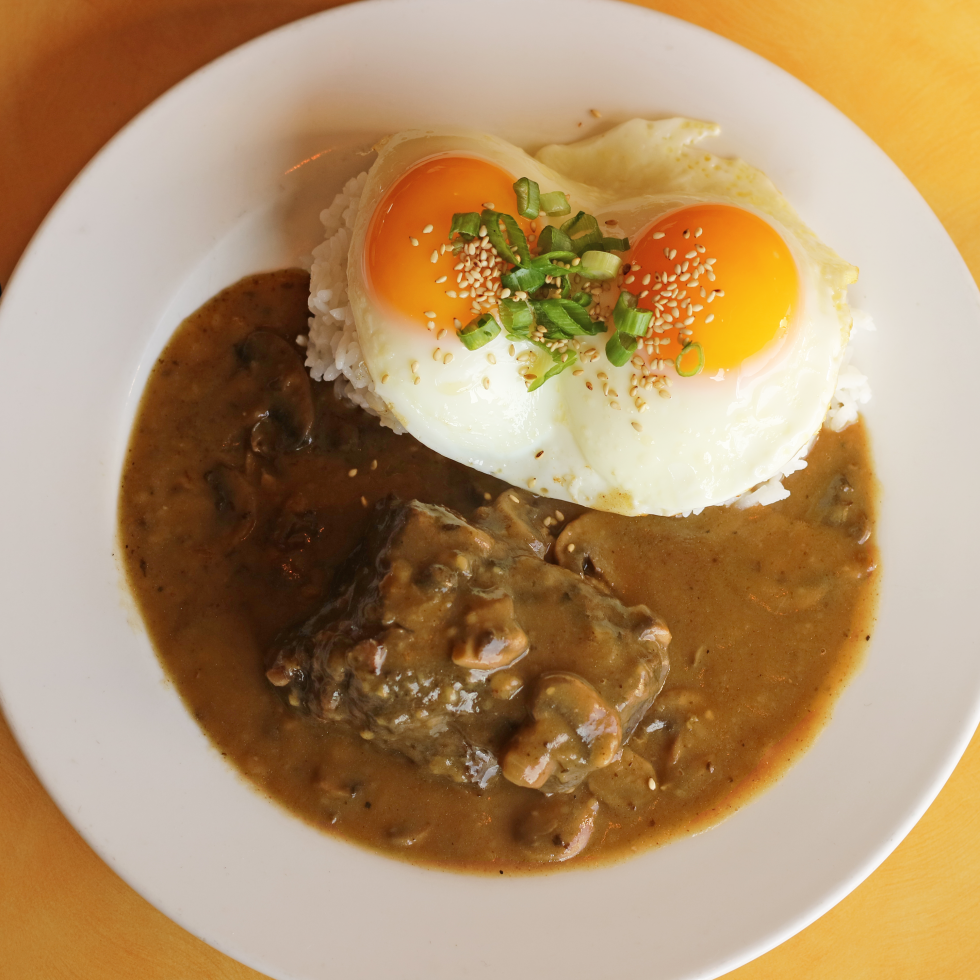
Pulido grew up in San Francisco, but his roots extend to Hawaii and the Philippines. His parents were both born in the Philippines and spent time in Hawaii before moving to California; his father at the behest of the U.S. Army (he enlisted under American colonial rule), and his mother to see her father, who worked on sugarcane plantations to put his children through college. Other Hawaiian connections came to him later in life. He met his wife, Anna, playing tennis at City College of San Francisco and later learned that she was born in Hawaii to Filipino parents. At their wedding, one of his cousins realized that the bride’s father had been his shipmate during the Vietnam War.
Arnold Pulido is the chef and owner of Kehaulani’s Cafe in
Vallejo.
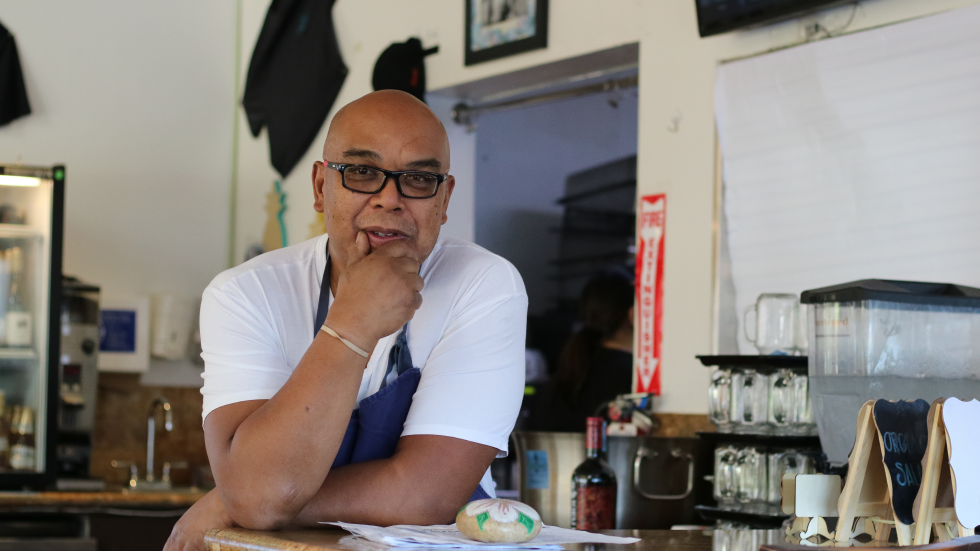
After taking classes in the hotel and restaurant management program at CCSF, Pulido worked his way through a series of high-end, mostly European kitchens in the Bay Area, ending as chef de cuisine at Va de Vi in Walnut Creek. The executive chef there, Kelly Degala, was also Hawaiian Filipino, and he spoke the Ilocano dialect like Pulido’s parents. His interview for the job lasted more than two hours.
“I don’t explain to people what I do here. They’ll just say, ‘Oh, it’s not authentic.’ I mean, they’re right, but this is how I want to do it.”
Arnold Pulido, owner, Kehaulani’s Cafe
Near the end of the conversation, Degala said, “‘Braddah, it seems like you’re pretty qualified, but you should be cooking Filipino food. You should be cooking your food now,’” Pulido remembers. “And that stuck with me.” The opportunity came a few years later, when a “For Lease” sign appeared outside the Travelodge cafe. He sent in an application in secret, and his wife only learned that they would be taking over the business when he took her to sign the papers. Luckily, she was pleased.
They christened the restaurant after their daughter Ariana’s middle name, which means “dew from heaven” in Hawaiian. But Pulido considered giving the restaurant no label at all. “We could be a blank restaurant,” he says. “We just cook whatever we want that day.”
The empanadas at Kehaulani’s Cafe are filled with beef studded
with raisins and carrots.
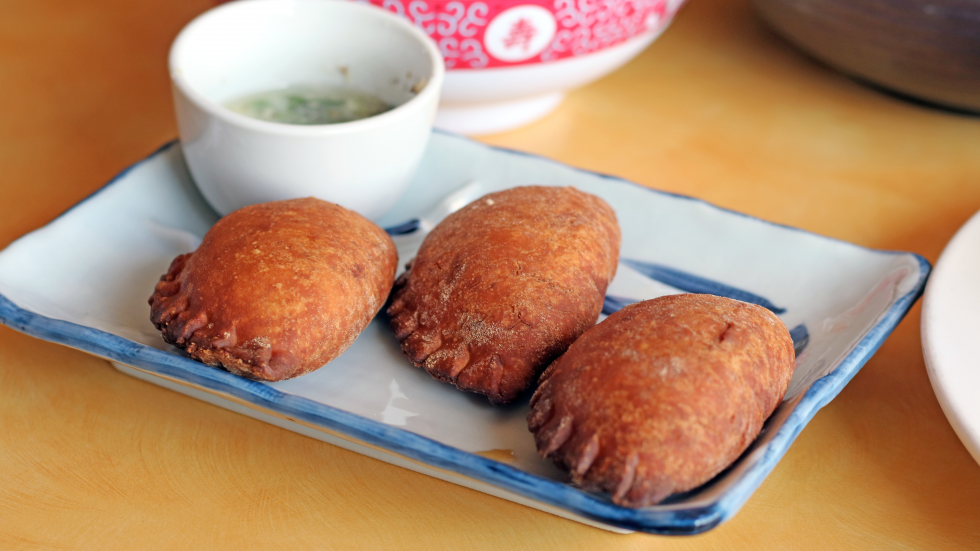
Kehaulani’s hasn’t strayed far from that concept. The offerings shift based on what Pulido finds at the market, techniques he’s interested in, and above all what he wants to eat. His favorite item on the menu is the lechon bowl, conceived as a frame for one of his favorite Filipino foods, lechon kawali (crispy pork belly). The pork, braised for 10 hours and then fried, arrives ringed in a palette of pickles that varies with the season. This month, it’s daikon, onions, cucumbers and kelp. Crowned with a half-boiled egg (often from NarGil Farms in Turlock, owned by Anna’s cousins), the bowl feels balanced — almost light. Still, “I don’t eat it every day, because that’d be bad,” he says.
Balance is key to this stage of Pulido’s career. His restaurant is only open five days a week, 9 a.m. to 3 p.m. The limited hours are due in part to familiar staffing issues: None of the original staff of 12 came back after being laid off early in the pandemic, so Pulido’s only kitchen helpers are his daughter, his son Austin and one of Ariana’s former high school friends. But after years in high-octane restaurant kitchens, Pulido values his time off.
Pulido says his favorite dish on the menu is the lechon bowl.
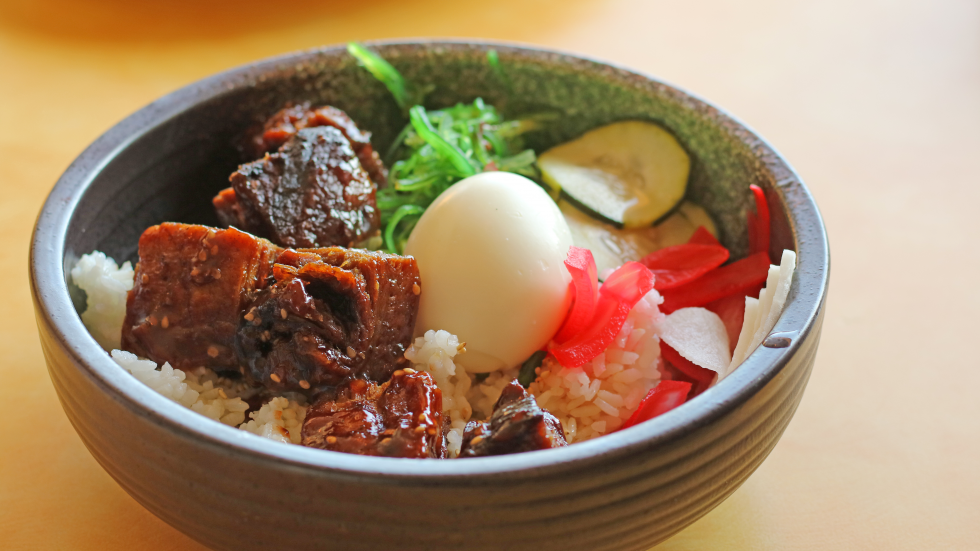
Every Sunday after closing, he invites friends and family to the restaurant for an evening supper, a tradition he picked up from his late mother. “I remember she used to cook up Sunday meals, big Sunday meals. … Now I’m doing exactly what she did,” he says. Guests come and go, lingering this time of year to watch the 49ers on the TV behind the register. “I’ll make something, just whatever we have left over. There’s always something to eat in the restaurant.”
Lately Pulido has been exploring the cuisine of his ancestral region, Ilocos, for these meals. The region was the focus of the dinner he catered for the October premier of the film “Generations,” a documentary about the history of Filipinos in Vallejo. “What I cooked was real, authentic Ilocano food that I hadn’t tasted in a long, long time,” he says. The spread included dishes with names he can hardly pronounce, like dinengdeng, a vegetable stew with traditionally foraged ingredients like jute and bitter melon leaves, and dinakdakan, a chopped pork hash that resembles chicken salad with brains in the role of mayonnaise. (Pulido made his with mayonnaise.)
Pulido says he developed his “new generation halo halo” — a
parfait of housemade sorbets layered with fresh fruit and syrup —
because he dislikes traditional Filipino halo halo made with
shaved ice, evaporated milk, canned fruit and sweetened beans.
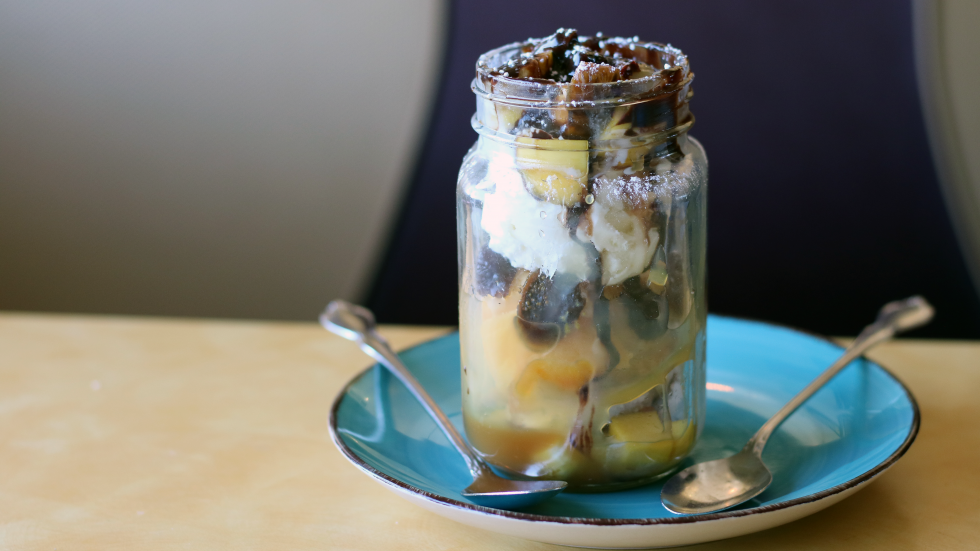
“I felt my mom’s presence when I was cooking all that stuff,” he says. The night before the event, alone in the restaurant, he felt a breeze as if someone was moving through the room. There was a hint of his mother’s cooking in the air, an aroma he often catches even when he’s far from the kitchen. “I caught myself almost tearing up. I made a connection, you know?” he says. “That’s the power of food.”
–
Stay up to date on business in the Capital Region: Subscribe to the Comstock’s newsletter today.
Recommended For You

Neighborhood Favorite: Taiwan Best Mart
A homemade sausage business grows into a popular restaurant
“It all started with the sausage,” says Christine Chang, the
second-generation owner of Taiwan Best Mart.
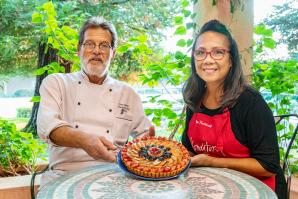
Neighborhood Favorite: Konditorei Austrian Pastry Café
How a ballerina and a baker built a Viennese pastry shop in Davis
Anyone who has visited the coffee houses of Vienna will see the
resemblance between those venerable institutions and Konditorei
Austrian Pastry Café in Davis.
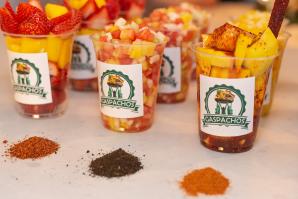
Neighborhood Favorite: Gaspachos
Four siblings bring a Michoacan specialty to Franklin Boulevard
Gaspachos in south Sacramento does not serve gazpacho, the
Spanish chilled tomato soup. Here and in Morelia, Michoacan,
gaspacho is something else entirely.
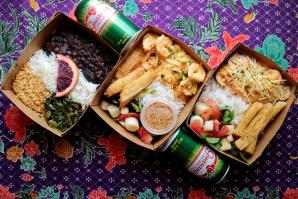
Neighborhood Favorite: Amazon Grill
A nonprofit serves Brazilian takeout out of a former school cafeteria
Amazon Grill is operated by the nonprofit Brazilian Center for
Cultural Exchange of Sacramento, which serves as a hub for the
Capital Region’s Brazilian community.



